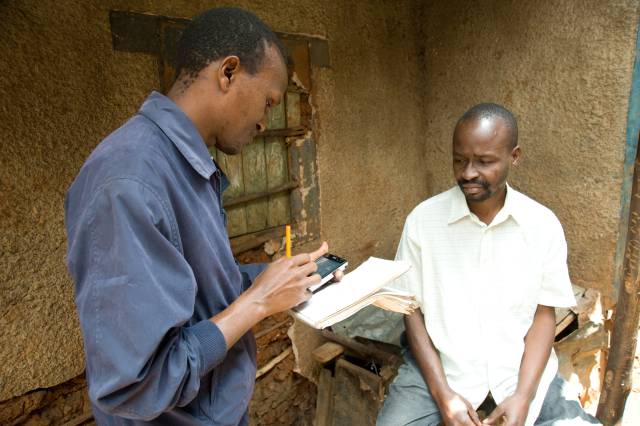You are here
A Global Approach to Building Equitable Data Systems
Data is critical for effective decision-making to improve public health. As such, public health practitioners are beginning to shift from traditional data approaches to those focused on community participation and community voices. Acknowledging the potential for transforming the way public health professionals collect, use and share data, the CDC Foundation, with insights from the Centers for Disease and Control Prevention (CDC), developed the Principles for Using Public Health Data to Drive Equity.
These data equity principles build upon thought leadership and practical applications to encourage more inclusive practices and expand efforts to approach data more equitably. A central tenet to each of the five principles is ensuring that community voices lead the conversation.
The definition of community may vary at the city, state, national and international levels. Still, as countries address emerging health threats and apply equity within a geopolitical context, it is critical that public health recognizes the potential to learn from community members everywhere. When discussing data and data modernization, are we considering how to draw on the experiences and insights from other countries? How are countries utilizing large-scale systems while allowing data reporting and response flexibility on the local level and for special populations? How are others prioritizing diverse perspectives not only in data collection and governance but also in data analysis and dissemination?
As our global inter-connectivity grows, there is momentum toward increased bilateral dialog between what we traditionally consider the global north and global south—marked typically by socio-economic and political divisions. Recognizing that all countries have something to learn from others provides a more equitable lens to our data discoveries.
Recently, the Global Digital Health Forum brought together data practitioners for the Driving Effective and Equitable Digital Health Innovation conference. The conference proposed merging the community layers by identifying global successes and applying these to local communities. Among the novel approaches to using digital technologies to improve health outcomes were examples of reframing key community partnerships to drive equity, such as expanding by the use of community health workers.
Many global communities utilize community health workers as data collectors to support local voices and ensure communities are leading the conversations. Often, these workers bridge the digital divide in rural and lower socio-economic communities and bring a human-centric approach to the data. Community health workers also highlight the need to focus data conversations beyond the technical governance of public health data and digital systems. Though digitizing data allows easier communication across communities, a human-centric approach is imperative—not only with human-led algorithms, but in every stage of data integration.
Data influences every aspect of public health, from funding decisions and policy development to response. Building truly equitable data systems requires reflection on the complicated layers it takes to build equitable approaches. Many questions and solutions are still being explored within the public health data knowledge space. By linking a global perspective with local community viewpoints, public health and data users can work towards more equitable systems. By sharing our data approaches and learning, we are stronger together.

